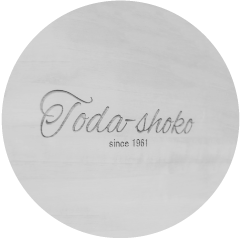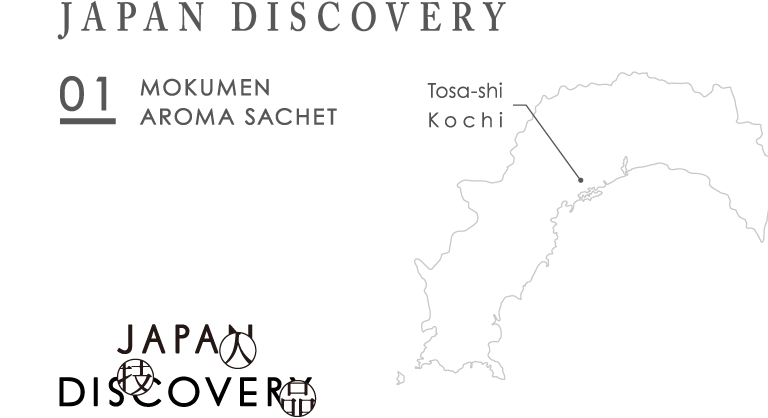


We found the artisan spirit
cutting wood from Kochi Prefecture
at Japan’s only wood wool specialist.
Interview with Toda Shoko President Michiko Toda
Photo by Makoto Koike
Natural materials: an old favorite.
Toda Shoko was established in 1961 as a specialist producer of wood wool, a product made by shaving wood into narrow ribbons (that are also known in the US as “excelsior”). Wood wool’s resilience made it ideal as packing for fruit and other fragile items. Over a hundred companies produced wood wool in Japan in the 1960s, but now, after the development of synthetic alternatives, only a handful of companies handling wood wool remain, and the only remaining wood wool specialist is Toda Shoko.
Toda Shoko survived amid the changing times thanks to their previous president’s passion for quality. They only use logs cut in Kochi Prefecture, giving their wood wool superior humidity-conditioning, anti-bacterial, and anti-fungal properties.
Their factory design, machine design and maintenance, and knife selection were among the best in Japan, and their technology attracted widespread attention.
Their passion has paid off. Old customers remain faithful, and new customers continue to appear. Yesterday, the apprentice of a well-known doll maker placed an order for wood wool for doll filling. Apparently, a different brand of wood wool that they were using triggered allergic reactions in the craftsman, and the symptoms disappeared after changing to Toda Shoko wood wool. Some say it has an aromatherapy effect that makes their work easier, and others say that they felt the power of natural wood again.



Finding a new friend
with a love of craftsmanship.
Toda Shoko has always been passionate about wood from Kochi Prefecture. Wood from the gently sloping hills of Kyushu is as cheap as the trees are easy to harvest. By contrast, wood from Kochi’s steep mountains is expensive. But that is what Toda Shoko chooses to use. Using wood from local forests has the advantage of keeping delivery costs down, but the real advantage is in stimulating local forestry. After a forest is felled, it must be replanted. It’s about giving back to the environment: as forests grow, they absorb carbon dioxide from the air and release oxygen back.
The third generation of the Toda family took the helm in 2012. Toda Shoko president Michiko Toda is using her woman’s perspective to develop new products.
One such product, called Hanamoku (blossom-wood), combines the relaxing effect of Hinoki cypress with superlative air permeability and moisture transpiration. It can be used as a pillow or drawer insert. It was originally planned to be merely an eye-catching product to advertise the properties of wood wool, but its popularity grew, and now many variations are available.
Our conversation today reassured me that we had both had a passion for quality, an earnest attitude toward craftsmanship, and made no compromises about choosing materials that are gentle to the body.


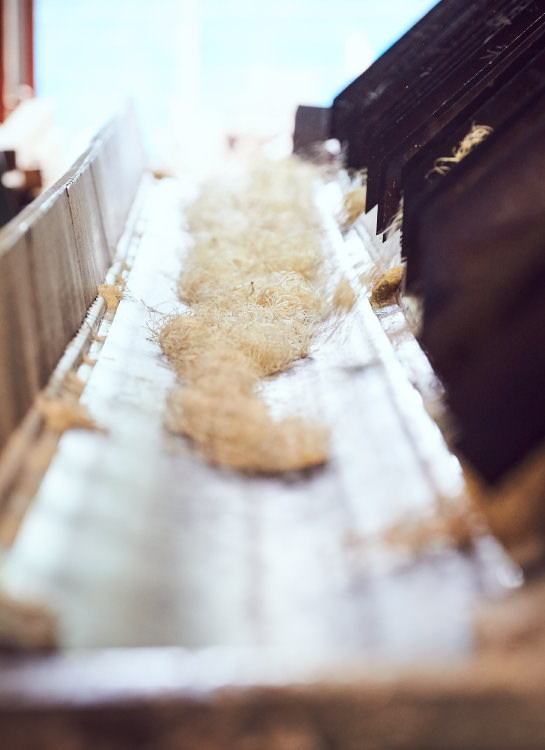


An idea that spans generations:
training the next generation with passion and faith.
One thing that Toda Shoko would like to preserve for the future is the skill of its staff. Toda Shoko’s factory manager has worked there for twenty years, and another worker has worked there for fifteen; and both have inherited valuable skills from their predecessors. Some procedures have been written down, but the two would still have new workers “Look and learn!” Some tasks need to be practiced to be understood, so the next generation of workers is coached by allowing them to work while a veteran monitors quality.
Michiko Toda wants people who come into contact with her products to understand how she feels about wood. She says that although European culture is rich in stonework, Japanese culture has long been associated with wood. That’s why it’s natural to feel at ease with woodwork nearby.
One reason for their wooden padding’s lasting popularity is the aroma that it emanates. Using it can be a way to experience Japanese culture. She hopes that by delivering people wood wool, she can help them to experience Japanese culture in a way that only wood can communicate.
Among her parting words was a quote that summarized her personal philosophy: “Have faith when associating with others.” She said that in the midst of learning many things, and after much reflection on the question of what she desired the most, she found that her greatest pleasure was in building trust with people close to herself – whether they were her family, her staff, or her customers. “One cannot do business without a sense of devotion and duty; it’s the core principle of management.”
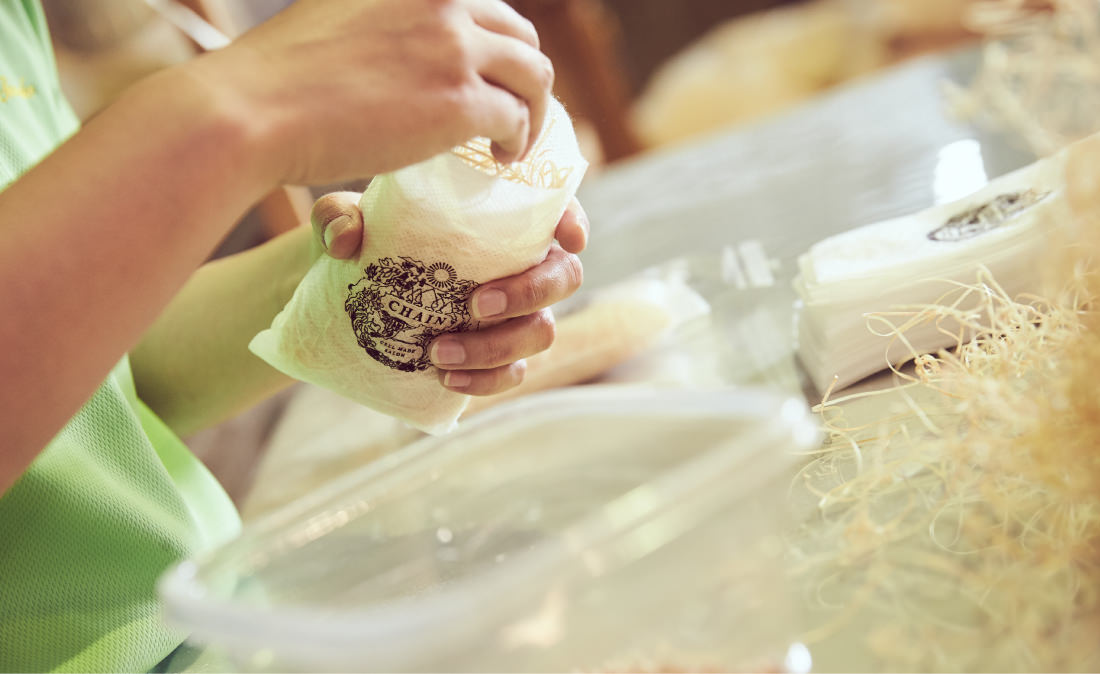
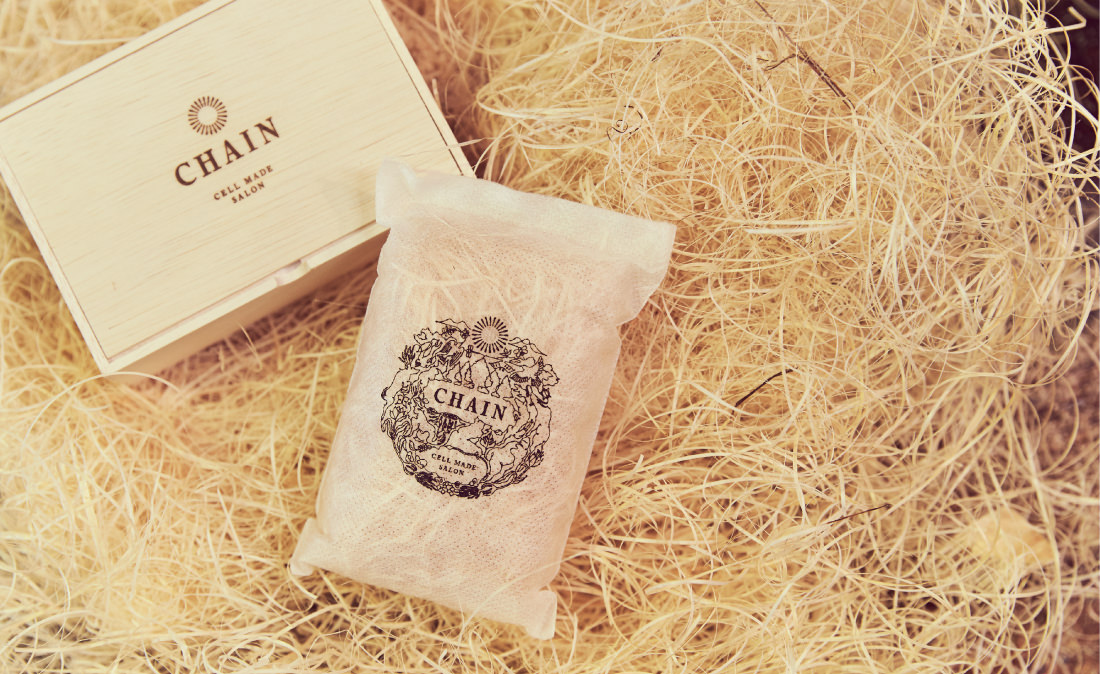

![]()
![]()
580 Honmura, Tosa-shi,
Kochi Prefecture 781-1122
TEL +81-88-855-0426
FAX +81-88-855-1278
